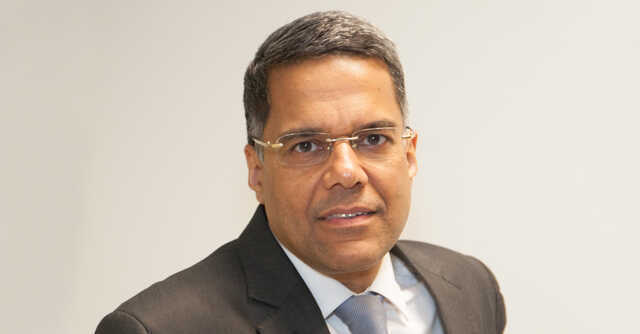
How the financial services sector can up its cloud skills


The metrics around cloud adoption are both, encouraging and daunting. As the demand for digital transformation continues to accelerate, organisations are discovering that there can be no business strategy without cloud. Leading businesses understand that they must make a shift in their strategic use of cloud; from a technology differentiator to a business accelerator, delivering growth, innovation, agility, and exceptional experiences to customers, partners, and employees alike. At HCL, this has led us to rethink how cloud can be integrated intelligently within our customer’s larger IT roadmap. HCL CloudSmart coalesces industry IP, home-grown solutions and offerings, and a progressive organisational culture to help businesses maximize their investments. It reimagines the cloud landscape to offer a customisable portfolio of smart services, driven by automation, cloud engineering muscle and a powerful partner ecosystem.
The top investors in cloud are expected to be healthcare, retail, government, telecom, manufacturing and financial services (FS). One recent study of FS found that 86% respondents believed hybrid cloud would be the ideal operating model for their organisation and 54% plan to increase their hybrid cloud penetration (from 15% last year) in the next five years. The same study also found plans by FS organisations to reduce their dependence on traditional, non-cloud-enabled data centers from 14% to 4% within one year. While this is encouraging, and is the right path into a stable future, the question is: Where is the talent to deliver against a cloud strategy?
To bring cloud to the centre of transformation, growth, stability and customer experience, it is necessary to have cloud expertise. This, unfortunately, is not easy for most organisations. A 2020 study shows that 94% of organisations are struggling to find the right cloud talent while 90 % report a lack of skills in multiple cloud disciplines. This presents a daunting challenge.

The talent deficit results in making cloud ambitions difficult and frustratingly slow to achieve. Without the right talent, the industry’s ability to use cloud to embrace emerging technologies such as AI and ML for innovation, improve on-demand processing, leverage cloud-native technologies for DevOps and optimize products, is proving to be elusive. The need for full stack cloud engineers and architects with domain experience has never been more urgent.
The FS sector faces a dual problem in attracting and retaining tech talent. The first is the industry culture that millennials (today’s rising talent bank) find difficult to relate to and the second is the combined competition from fintech startups and tech giants like Amazon, Microsoft, Google and IBM.
The FS sector has one obvious solution: It must turn to its technology partners to bridge the talent deficit. In turn, technology partners must ramp up their recruitment, upskilling and reskilling practices if they want to meet the unstoppable demand for cloud skills.

At HCL, we recognize that cloud in FS presents a large challenge and an opportunity. This has led to the creation of a cloud-focused talent generation strategy that our FS clients are beginning to appreciate. The strategy has three layers: Intense in-house re-skilling and upskilling programs, hackathons, and recruitment aimed at harvesting full-stack cloud talent whose time-to-productivity is low.
The in-house re-skilling and upskilling program began as a means to meet the digital transformation needs of our clients. We have a wide range of open training programs, virtual instructor led programs, self-learning programs and e-learning programs. These include modules specifically designed for AWS, Azure and Google Cloud (development, sysops, architecture, data engineering and DevOps), along with relevant courses in AI, ML, automation, and cloud engineering. These programs are routinely adjusted, and new ones are tailor-made depending on emerging client requirements. The goal is to transition in-house talent from one role to another, depending on market needs. Our talent enhancement strategy recognizes the need to have a product engineering mindset, as opposed to a pure developer, which helps develop and deliver SaaS products and scale cloud migration journeys. We are looking at a “Pi-shaped” model of skill development, where every resource has a broad horizontal skillset, backed by strong depth of expertise in two specific skillsets.
This approach helps develop a long-term talent bench which can migrate across projects and help scale requirements in a short span of time. Aided by a culture of in-house CoEs (Centers of Excellence) and Innovation Labs, many of which are created in partnership with hyperscaler partners and customers, we have developed robust training modules which cuts across specialties and encourage full-stack capabilities. Building employee skills with pinpoint precision, our training programs are project agnostic, recognizing the dynamic business environment we are in and continuously investing to ensure we are ready to deliver for our clients at speed and scale.

In addition to stay closely aligned with the most current needs, the HCL also conducts a host of training programs tailored for specific needs across ecosystem partners, such as AWS, Google Cloud, Azure, Cisco, Dell, Intel and IBM. These are specialized trainings and certifications which are based on evolving business needs, tech upgrades and more as the technologies evolve. We have over 70,000 trained professionals across many such capabilities. We also encourage employees to take up certification courses by Cloud Foundry and Kubernetes foundation to enhance specialized cloud and network capabilities.
The second strategy to develop the required skills is through hackathons. We have been organizing regular hackathons where the skills and expertise of participants in various technologies is put to test along with the ability to think out of the box. Tools like Hackerrank and Codelity are used to accurately evaluate the skills of participants who are then on-boarded in our Hack2Hire model to fulfil specific role requirements. Time-to-productivity using this strategy is remarkably low and often the talent can be put into a program with minimal additional training.
Finally, we use two old-school tactics to build our talent bank. The first is a healthy referral program to recruit new employees with the required skills. This speeds up recruitment and the new team members in agile formations spur more team members to upskill. The second is to build an exemplary layer of talent at the top made of the best minds in the industry. These employees become a magnet for attracting the cream of talent down the line.

The need for advanced cloud skills will continue to grow. Many FS organisations know that a lack of cloud skills will become a roadblock to developing new products and to improving customer experience. These organizations must look for partners who have access to a pipeline of highly trained and certified specialists instead of hurriedly shopping around for cloud talent. These partners can bridge the talent gap while the bank builds an internal talent pool.

Rahul Singh
Rahul Singh, president, financial services, HCL Technologies. The views in this article are his own.
